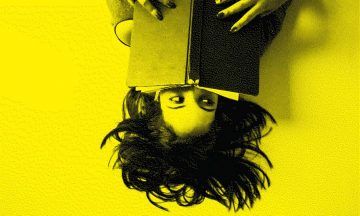Johanna Thomas-Corr in The Guardian:
 Ian McEwan once wrote: “When women stop reading, the novel will be dead.” Back in 2005, he and his son culled the library of his London house and took stacks of books to a local park to give away. He said every woman he approached asked for three, whereas every man “frowned in suspicion, or distaste” and usually said something like: “‘Nah, nah. Not for me. Thanks, mate, but no.’” The history of fiction has always been a history of women readers. From the 18th century, the novel itself was aimed at a new class of leisured women, who didn’t receive formal education in science or politics. The male writers and critics who wrote and appraised the first novels legitimised the form, but Taylor says they “were quickly overtaken by women writers of sensation and romance fiction. Women took to it as a way of learning about other lives, fantasising about their own relationships and narratives that allowed them to challenge their own subordinate position to men.”
Ian McEwan once wrote: “When women stop reading, the novel will be dead.” Back in 2005, he and his son culled the library of his London house and took stacks of books to a local park to give away. He said every woman he approached asked for three, whereas every man “frowned in suspicion, or distaste” and usually said something like: “‘Nah, nah. Not for me. Thanks, mate, but no.’” The history of fiction has always been a history of women readers. From the 18th century, the novel itself was aimed at a new class of leisured women, who didn’t receive formal education in science or politics. The male writers and critics who wrote and appraised the first novels legitimised the form, but Taylor says they “were quickly overtaken by women writers of sensation and romance fiction. Women took to it as a way of learning about other lives, fantasising about their own relationships and narratives that allowed them to challenge their own subordinate position to men.”
Though there have been histories of women’s reading, Taylor’s spirited, engaging study is the first that tries to capture how fiction matters to contemporary women of different ages, classes and ethnic groups. She says that when she tells men the title of her book, they get defensive. “They say, ‘But I read fiction too!’ I say, ‘I’m sure that’s true, but far fewer men do.’ When I scratch beneath the surface to find out why they have read a certain novel, they never give me an emotional answer. It’s always: ‘Well, it’s because I’m very interested in stories about the first world war or the Victorian period.’ Or they say they did history at university and want to follow up certain ideas. Or that they quite like to read Martin Amis because his characters are funny.”
More here.
